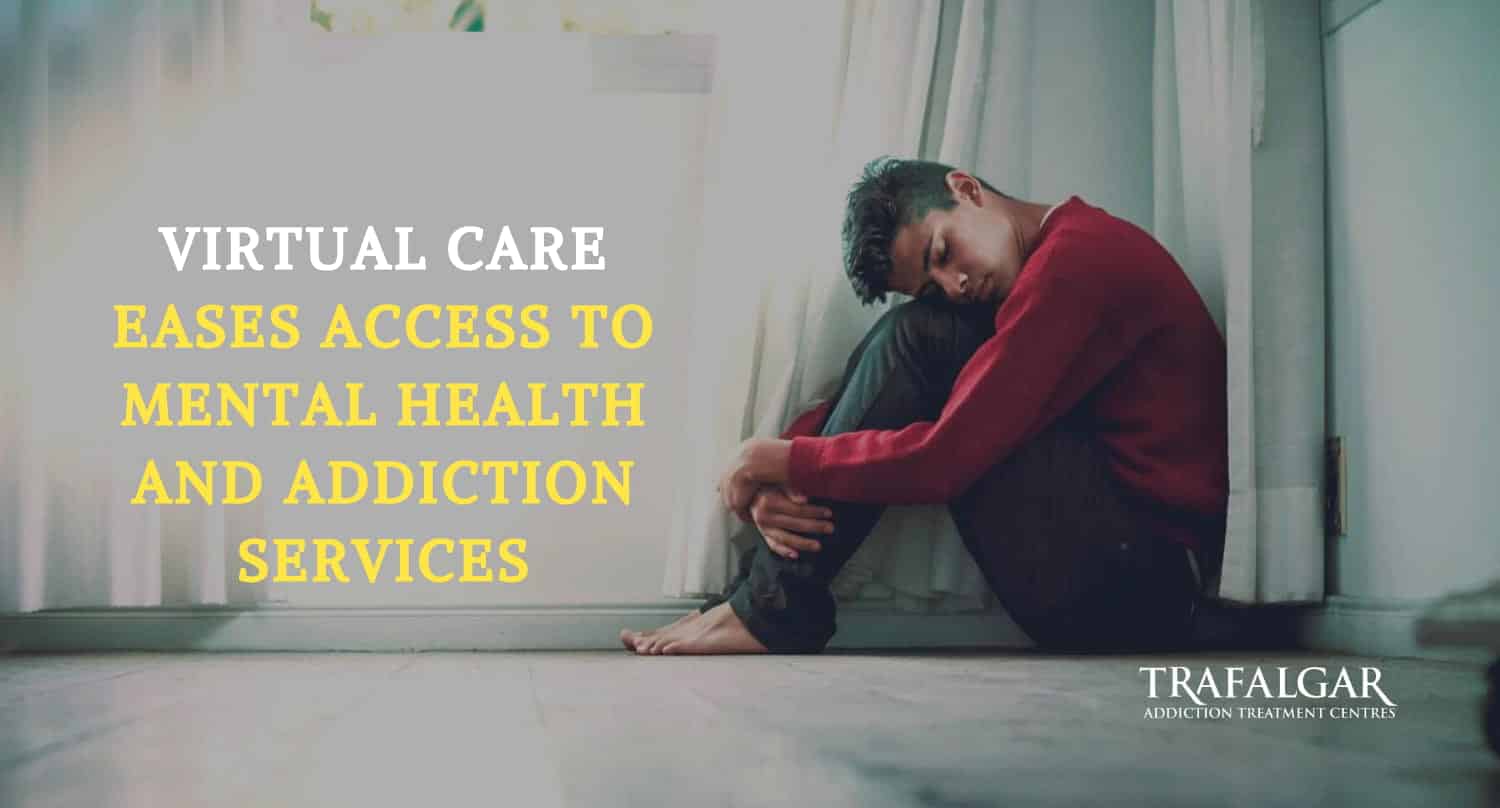
This article is taken from Canadian Healthcare Technology.
We are at a crossroads in mental healthcare. The pandemic is leading us to either turn a blind eye to the growing wave of mental illness and addiction in Canada or use the circumstances as an opportunity to adapt and improve mental health services.
In a recent survey done by Statistics Canada, over half of all participants reported that their mental health has worsened since the onset of physical distancing.
This survey aligns with research undertaken by CAMH, which shows an increase in the number of Canadians with increased alcohol consumption, elevated anxiety, feelings of loneliness, and who are grappling with depression.
Soon after the pandemic started, many healthcare organizations launched virtual care for at least some of their services.
Trafalgar Addiction Treatment Centres, a CARF-accredited private provider of addiction and mental health treatment that offers residential and outpatient clinic programs in person, transitioned all outpatient programs to be fully virtual when the pandemic hit.
“When COVID hit and we had emergency orders coming in telling us, ‘you’ve got to lock down,’ we knew that we couldn’t send anybody home without access and support,” said Shane Saltzman, CEO of Trafalgar Addiction Treatment Centres.
“We reached out to OnCall Health and said, ‘How quickly can you get me activated, signed up, and start onboarding my staff?’ Within 48 hours we started delivering virtual care.”
Headquartered in Toronto, OnCall Health provides secure virtual care software that powers over one million virtual healthcare appointments each year for healthcare providers and organizations throughout North America.
Although Saltzman admits that his team had aspirations to implement virtual care at Trafalgar Addiction Treatment Centres before COVID-19, the pandemic acted as a catalyst, driving the organization to act fast in the face of change. Trafalgar launched a virtual rehab program to replace its outpatient services that were typically held in person.
OnCall Health appointed a full-time account manager to ensure Trafalgar’s employees were adequately trained, onboarded, and able to access knowledgeable technical support 24/7. Trafalgar was using the system in its practice in only two days.
Mental health and addiction services like Trafalgar have seen improved outcomes while using virtual care platforms to connect with patients remotely, streamline administrative tasks, and even host internal meetings for clinical supervision.
Virtual care allows practices like Trafalgar the capacity to schedule flexible appointment times that are more convenient than in-person visits. Providers and healthcare organizations can use this versatility to expand and improve access for their clients while increasing revenue for their business.
“This virtual realm makes mental health and addiction treatment much more accessible,” said Saltzman. “We can now provide essential treatment, safely and securely. We can manage full group sizes and scale up and down quickly.”
Trafalgar’s four-week Virtual Rehab Program provides patients with 20 hours a week of individual group and family therapy. Online treatment delivery has also enabled Trafalgar to expand its services nationally, with patients from across Canada participating in the three Virtual Rehab Program groups that it offers each day – with six to 10 people in each group. Before the pandemic, Trafalgar was only able to offer one rehab program.
The virtual care platform allows healthcare providers and patients to interact using one to one and group video conferencing, but it doesn’t stop there. The platform also enables secure instant messaging, file sharing, screen sharing and the ability to schedule and manage phone appointments.
For its part, OnCall Health has seen a spike in the use of subscription text therapy services among clients, a feature that allows providers to use a messaging application to either complement a video appointment or confidentially engage in professional counselling. These unique telehealth applications now grant people access to licensed therapists in the palm of their hand.
Virtual care in a mental health context has also improved outcomes for providers in unique ways. In one application, a behavioural therapy provider that assists children with autism recognized that video conferencing allows children to be accompanied by their parents in the comfort of their home. Children get to learn skills in the same environment in which they need to apply them, making it easier for them to replicate the behaviours.
Seniors have also reaped the benefits of virtual care. Ageing populations are especially vulnerable to the mental health challenges that result from isolation due to social distancing protocols amid COVID-19. Seniors that engaged with virtual care platforms for their primary care needs reported unexpected mental health benefits. They were also satisfied with the opportunity to remain active in the management of their health.
Healthcare providers are embracing the efficiency of virtual care as it enables them to not only connect with clients virtually but also efficiently manage operations with features like automatic scheduling, appointment reminders, consent forms, and secure payment processing. Privacy is also protected with end-to-end encrypted, PHIPA and PIPEDA compliance.
This article is written by Nicholas Chepesiuk, CEO of OnCall Health – a provider of virtual healthcare software.





